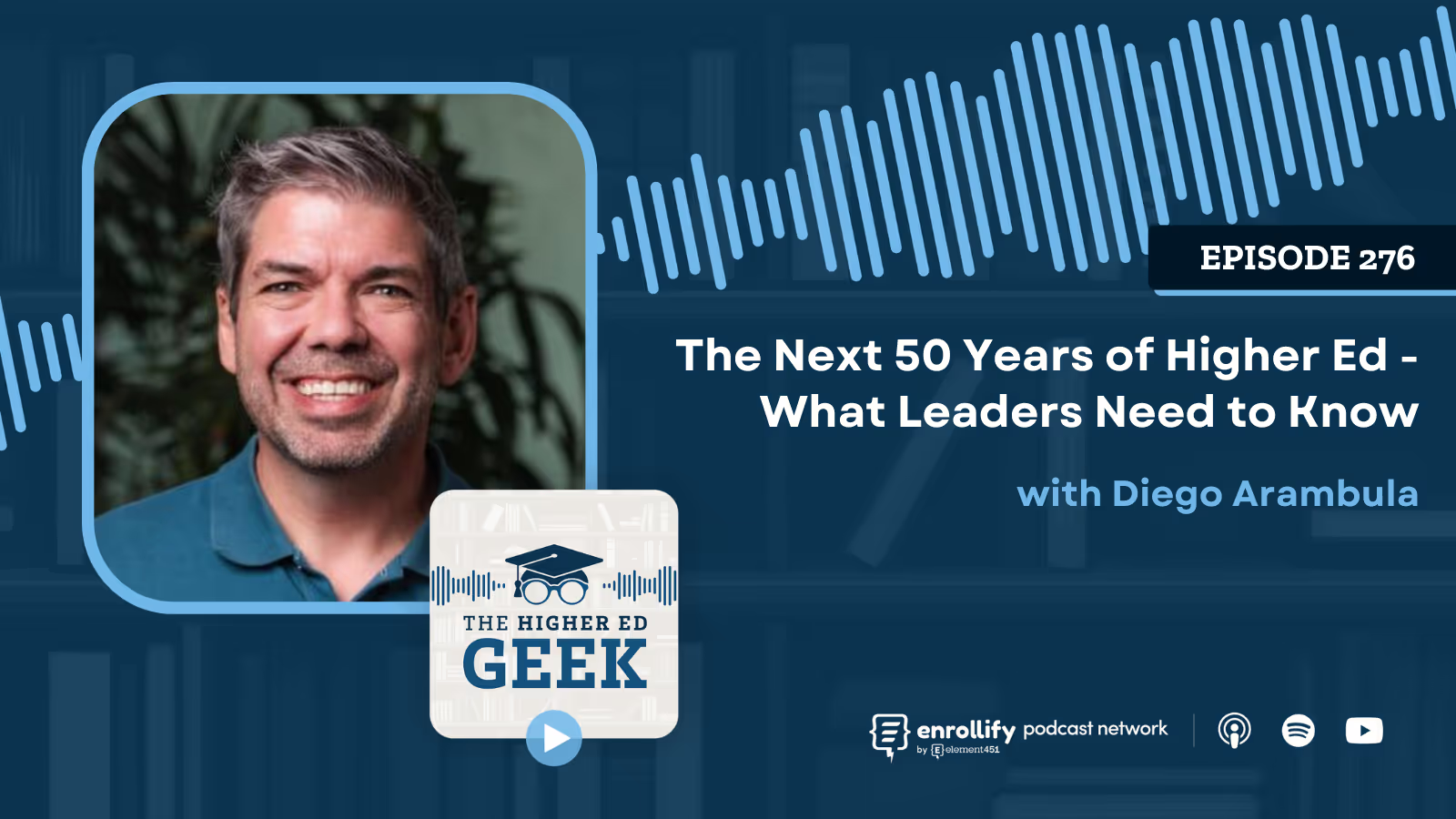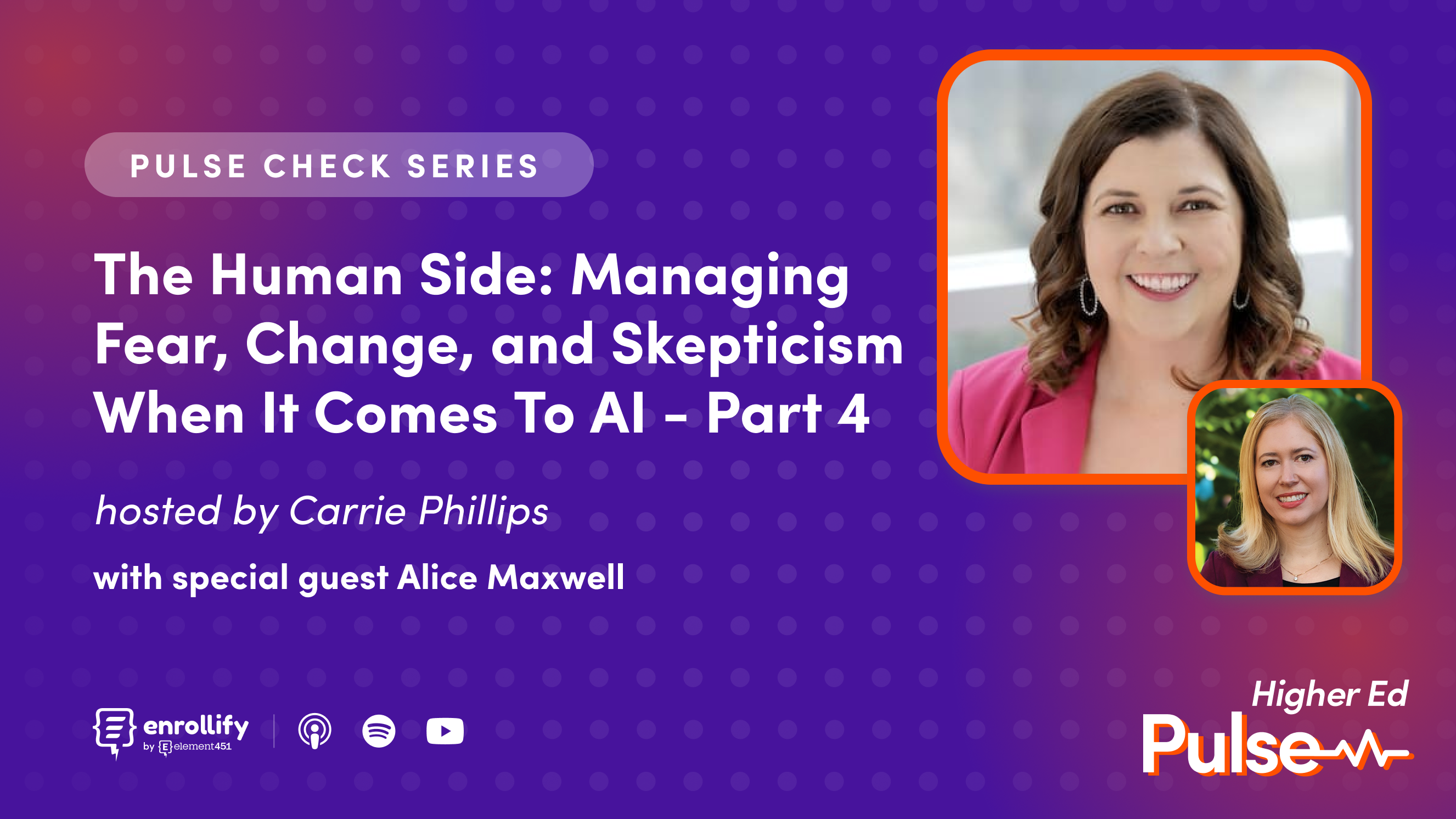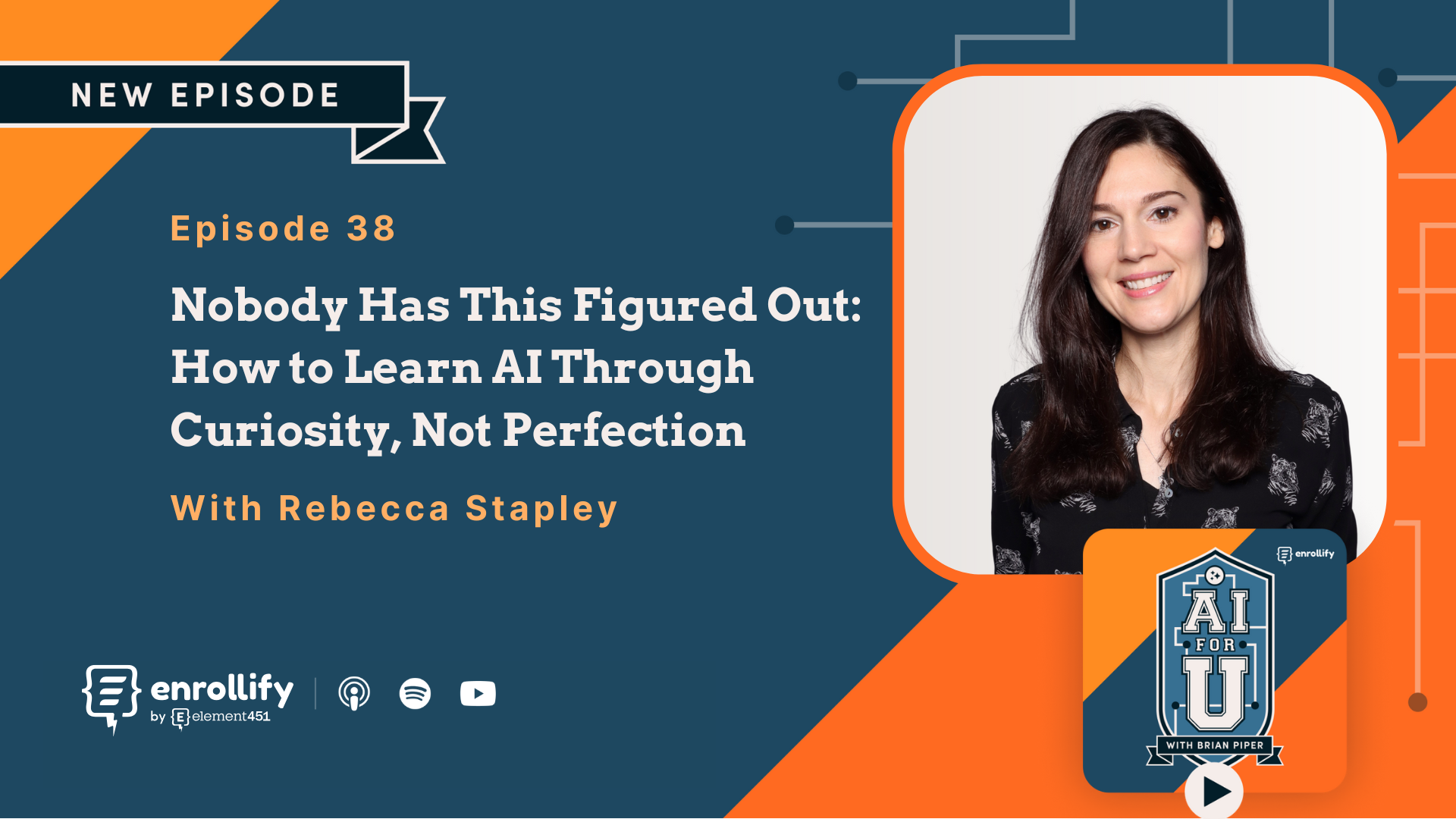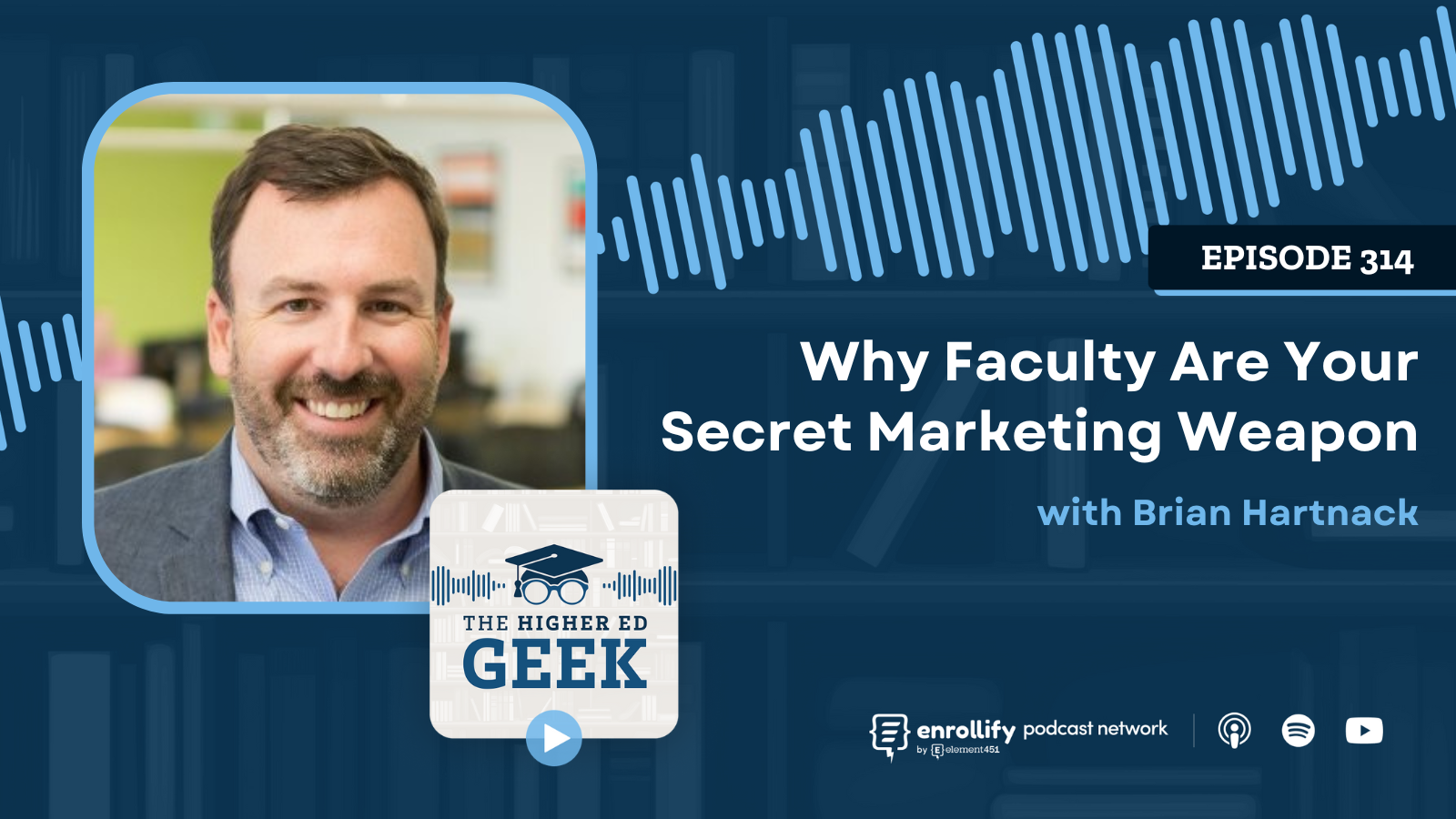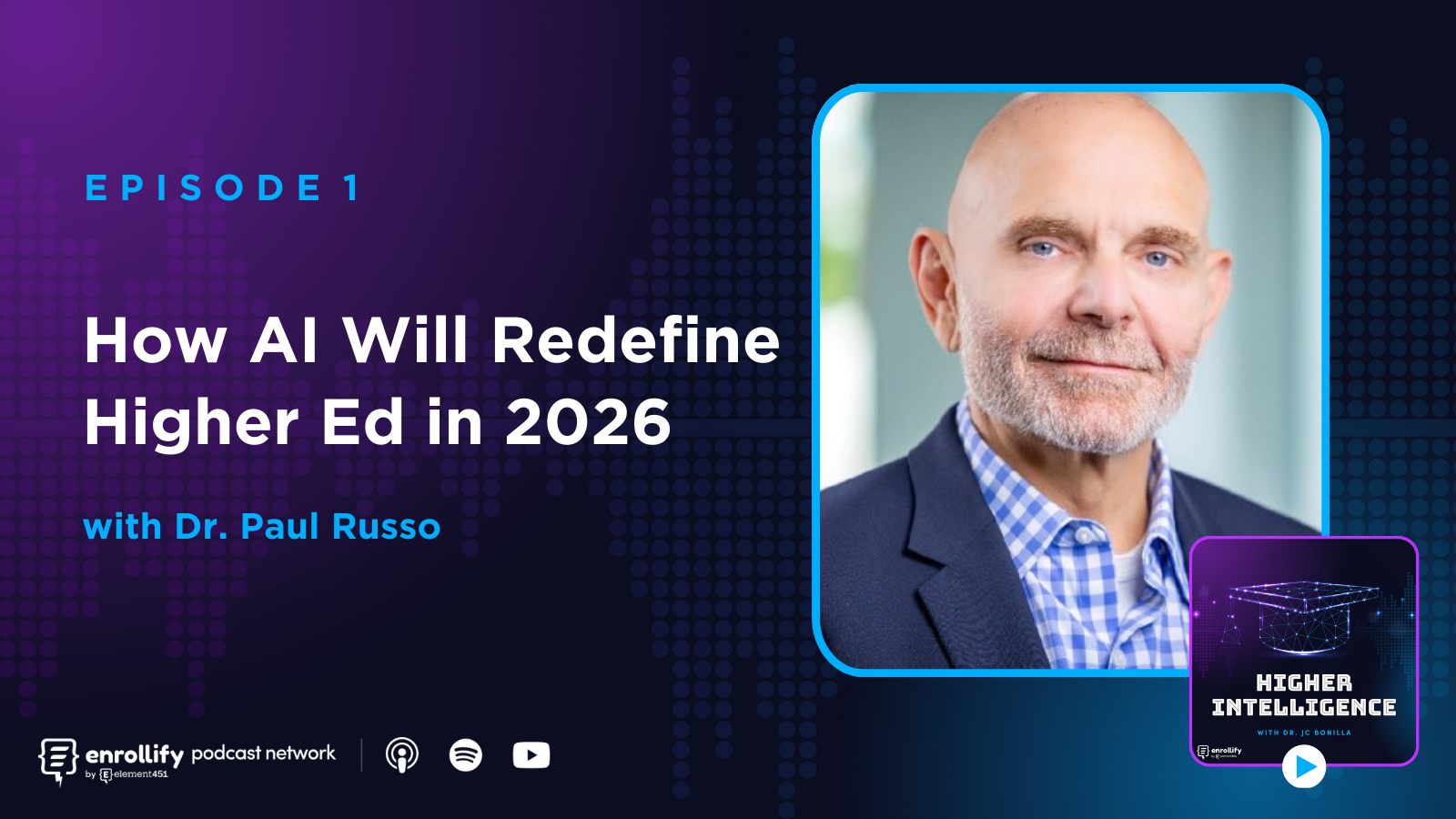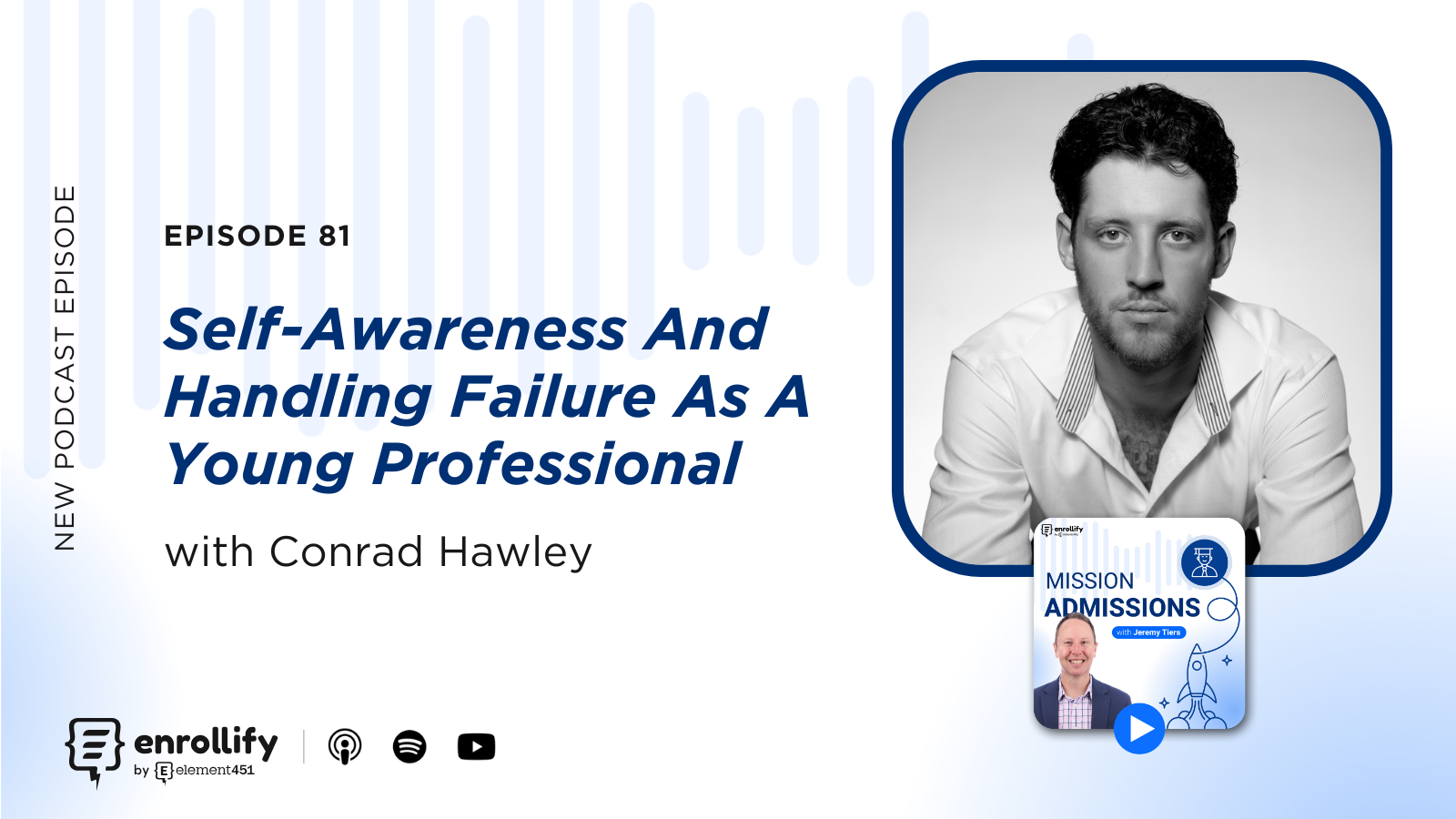About the Episode
Got a story to tell? An innovative idea to share? Fill out our guest nomination form and let's chat!
About the Episode:
In this special episode recorded on site at SXSW EDU, Dustin speaks with Diego Arambula, Vice President of Educational Transformation at the Carnegie Foundation. Diego discusses how higher education must evolve to remain a powerful engine for economic opportunity — especially for students who are furthest from it. He unpacks the need to rethink degree structures, the role of digital transformation, and how institutions can better prepare students for career success. Tune in to hear how the Carnegie Foundation is leading efforts to reshape college classifications and workforce connections for the next generation of learners.
Key Takeaways
- Higher ed must evolve to remain a vehicle for economic mobility — Institutions need to rethink outdated degree structures and better align programs with workforce outcomes.
- New Carnegie Foundation classifications are coming — Including the Student Access and Earnings Classification, which will focus on post-college earnings and social mobility.
- Digital transformation in higher education is no longer optional — Institutions must integrate tech infrastructure and support systems that meet students where they are.
- Faculty training is a critical missing link — Professional development must be more accessible and systemic to ensure ed tech tools are used effectively.
- Long-term thinking is essential — Schools should be asking what decisions today will still matter—and benefit students—10 or 20 years from now.
What is the Carnegie Foundation working on to advance higher education?
The Carnegie Foundation is doubling down on its mission to create more economic opportunity for young people, particularly those furthest from opportunity. Diego Arambula explains that this includes both high school transformation and postsecondary innovation. On the higher ed side, the Foundation is reimagining its influential Carnegie Classifications to better reflect and incentivize institutions’ contributions to student success and economic mobility.
Why do the Carnegie Classifications matter?
For decades, the Carnegie Classifications have served as a guiding framework for understanding institutional differences and similarities, primarily benefiting researchers and policymakers. Now, the Foundation is expanding these classifications to better reflect student outcomes, particularly through new metrics like post-graduation earnings. Arambula explains that these new classifications aim to surface institutions that are truly advancing social mobility and creating access to high-value outcomes for students.
How is digital transformation reshaping higher ed today?
Arambula draws on his experience as Vice Chair of the California State University (CSU) Board of Trustees to describe a shift from edge-case innovation to system-wide transformation. Pressure from student demand and enrollment challenges has accelerated investment in digital tools—from AI initiatives to online infrastructure. However, the real challenge lies in faculty readiness. Without professional development, even the most promising ed tech tools fall short. This creates a clear opportunity for systems like CSU to support scalable training initiatives across campuses.
What’s the relationship between digital transformation and institutional culture?
Diego emphasizes that every institution must find its own way to adapt to digital transformation—it’s not about a one-size-fits-all approach. However, systems-level support and a thoughtful implementation strategy are critical. He also notes the importance of integrating tools that align with institutional values and student needs, rather than adopting tech for tech’s sake. When done well, digital transformation improves access, flexibility, and student engagement—setting the stage for better long-term outcomes.
What should higher ed leaders keep an eye on for the future?
Looking forward, Arambula points to the rising importance of outcomes-based accountability in higher education. The Carnegie Foundation’s new Student Access and Earnings Classification is designed to spotlight institutions that successfully help students—especially low-income learners—transition into well-paying careers. He argues that improving student outcomes isn’t just about beefing up career services; it involves rethinking the entire student experience, from credentials to social capital development to internship opportunities.
About the Show: The Higher Ed Geek Podcast explores the impact of edtech on the student experience by speaking with diverse leaders from institutions, companies, and nonprofit organizations. Each week we aim to provide an engaging, fun, and relevant dose of professional development that honors the wide range of work happening all across the higher ed ecosystem. Come geek out with us! The Higher Ed Geek Podcast is hosted by Dustin Ramsdell and is a proud member of the Enrollify Podcast Network.
Connect With Our Host:
Dustin Ramsdell
About The Enrollify Podcast Network:
The Higher Ed Geek is a part of the Enrollify Podcast Network. If you like this podcast, chances are you’ll like other Enrollify shows too!
Some of our favorites include Generation AI and I Wanna Work There.
Enrollify is produced by Element451 — the next-generation AI student engagement platform helping institutions create meaningful and personalized interactions with students. Learn more at element451.com.
Attend the 2025 Engage Summit!
The Engage Summit is the premier conference for forward-thinking leaders and practitioners dedicated to exploring the transformative power of AI in education.
Explore the strategies and tools to step into the next generation of student engagement, supercharged by AI. You'll leave ready to deliver the most personalized digital engagement experience every step of the way.
👉🏻 Register now to secure your spot in Charlotte, NC, on June 24-25, 2025!







